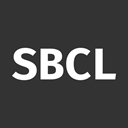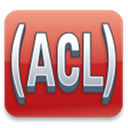CMU Common Lisp Alternatives: Exploring Your Best Options
CMU Common Lisp (CMUCL) has long been a robust and high-performance implementation of the Common Lisp programming language, cherished for its sophisticated native code compiler, powerful foreign function interface, and comprehensive development tools. However, for various reasons—be it specific platform needs, licensing preferences, or desired feature sets—developers often seek CMU Common Lisp alternative solutions. This article delves into the top alternatives that offer similar capabilities or cater to different niche requirements within the Lisp ecosystem.
Top CMU Common Lisp Alternatives
Whether you're looking for open-source freedom, specific IDE features, or broader platform support, there's a Common Lisp implementation out there that fits your workflow. Let's explore some of the best CMU Common Lisp alternatives.

AUMS
AUMS is a Free Personal, Windows-based alternative to CMU Common Lisp. It focuses on console-based interaction and macro capabilities, making it a concise option for specific development tasks.

Hy
Hy is a unique and open-source Lisp dialect embedded in Python, available on Mac, Windows, and Linux. It offers an interpreter, object-oriented features, and scripting capabilities, providing an interesting alternative for developers who want to leverage the Python ecosystem alongside Lisp.

Steel Bank Common Lisp
Steel Bank Common Lisp (SBCL) is a highly respected, free, and open-source Common Lisp compiler available across Mac, Windows, and Linux. Much like CMUCL, it prioritizes high performance and includes a robust compiler and debugger, making it a strong contender for those seeking similar power and flexibility.

CLISP
CLISP is a portable, free, and open-source ANSI Common Lisp implementation with broad support for Mac, Windows, and Linux. It provides a complete development environment, including an interpreter, compiler, debugger, CLOS, MOP, FFI, Unicode, and sockets, making it a comprehensive CMU Common Lisp alternative.

Clozure Common Lisp
Clozure CL (CCL) is a free and open-source Common Lisp implementation with a long history, available on Mac, Windows, Linux, and BSD. Known for its fast compilation, CCL is a solid choice for those prioritizing performance in their CMU Common Lisp alternative.

Allegro CL
Allegro CL is a powerful Free Personal, commercial-grade dynamic object-oriented development system available on Mac, Windows, Linux, and BSD. It's particularly well-suited for enterprise-wide, complex application development, offering a high-end CMU Common Lisp alternative for professional use.

GNU Common Lisp
GNU Common Lisp (GCL) is the official Common Lisp for the GNU project. This free and open-source implementation for Windows, Linux, and BSD compiles to native object code using the system's C compiler, providing both good performance and a strong adherence to GNU project principles as a CMU Common Lisp alternative.

LispWorks
LispWorks is a commercial implementation and IDE for the Common Lisp programming language, with a Free Personal Edition available for Mac, Windows, Linux, and BSD. It offers a comprehensive integrated development environment, making it an excellent CMU Common Lisp alternative for those who prefer a full-featured IDE.
Ultimately, the best CMU Common Lisp alternative depends on your specific development goals, operating system, and preferences for open-source vs. commercial solutions. We encourage you to explore these options to find the perfect fit for your Lisp projects.